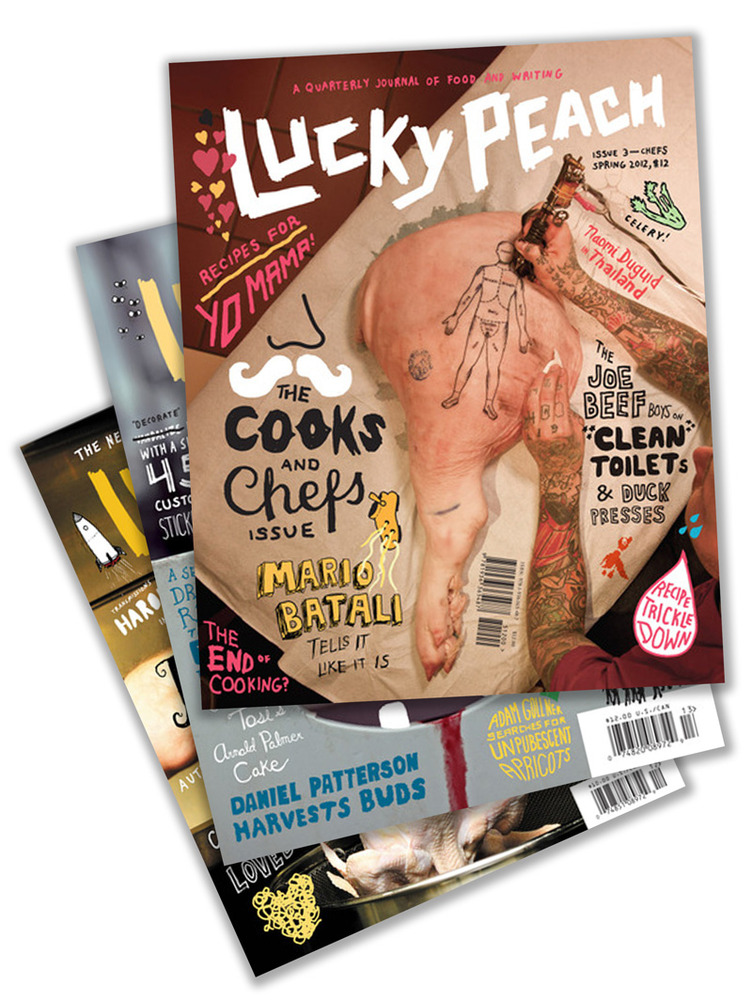 Lucky Peach—the much loved and highly irreverent food magazine – is shutting down. And there goes the niche? Well, hardly.
Lucky Peach—the much loved and highly irreverent food magazine – is shutting down. And there goes the niche? Well, hardly.
Rather, the food niche seems to be having a bit of a boom, judging by the number of titles that keep crossing my path. Many of these are chef-published, like the B2B title Plate or the home-cooking focus of Christopher Kimball’s Milk Street. Others are decidedly more in the “food as art” category, like Sybaris magazine.
“The magazine comes in an A5 envelope, and contains individual cards that tell stories of local culinary traditions through images of classic dishes and cut-and-paste humour,” writes Grace Wang in Stack about this Tel Aviv-based title. “It’s sarcastic, witty, full of metaphors, and treats glossy commercial food photography with confident irreverence.”
Still others are serving up great content with a regional flair, supported in part by the buoyant regional publishing market. Edible Maine, for example, is set to launch this June. The title is the latest franchise in a network of community-focused food magazines.
“A mission statement for the new magazine says it aims to help readers understand their food – such things as where it comes from, how it is made and how far it travels to reach stores shelves,” writes Peggy Grodinsky in The Portland Herald.
It’s a story and a message with particular resonance now, as consumers become more discerning about the source and quality of the food they consume.
“This is going to be a magazine you can cook from or look at, read deeply into or read for two minutes for fun things you didn’t know you could do in Maine,” said Michael Sanders, who is the new title’s editor. “Most of all, it should help you get out and do things – go to a restaurant, go clamming, cook…”
Edible Maine joins the same network that launched Edible Cleveland, a regional that is moving into its sixth year in print. Publisher Noelle Celeste notes that the brand’s core mission is about community building … and food is a large part of any vibrant community.
“We’re not about ‘gotcha’ journalism,” she said. “It’s all about storytelling.”
One title is reimaging what “food culture” actually looks like. MOLD is telling the food story not through the lens of the end consumer, but through the eyes of designers and technologists. And they are now set to launch in print.
“I feel like our generation cares a lot more about food than people did ten years ago, or at least in the expression of it,” notes the title’s new art director Eric Hu. But he cautions…it’s about food culture, not “foodie” culture, which he says is “more about the lifestyle of restaurants and food trends than critically examining what you eat, where food comes from, and how you engage with it.”
Food is by its essence an integral part of who we are and what we experience. The thought that there’s no room for food titles is as absurd as saying there’s no room for a good restaurant in town. It’s a huge part of who we are as a community.
